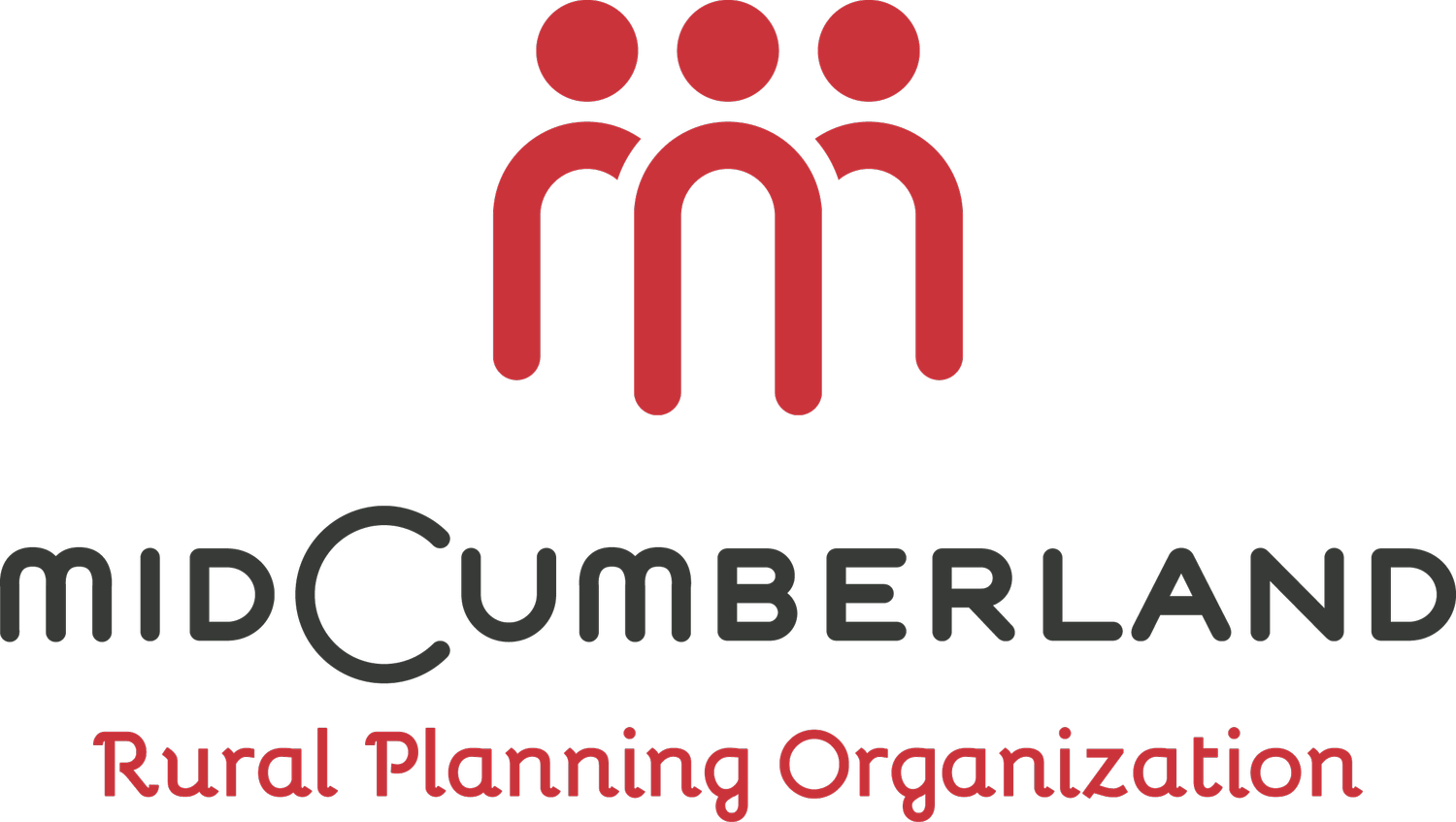
The Rural Planning Organization (RPO) is a consultation process between state and local officials to comply with Federal law and involve rural officials in multi-modal transportation decision making.
The Mid-Cumberland Human Resource Agency (MCHRA) is responsible for administering the Middle Tennessee Rural Planning Organization (MTRPO), and the agency’s Title VI & Environmental Justice program.
What is a Rural Planning Organization?
The Rural Planning Organization (RPO) is a consultation process between the state and local officials on transportation-related issues. The RPOs were created to comply with Federal law to involve local rural officials in the multi-modal transportation decision-making process, receiving transportation recommendations, and making funding decisions. RPOs take the input from rural communities within the region and communicates with TDOT in order to identify needs as they pertain to highways, transit, bike/pedestrian issues, aviation and the waterways. RPOs are commonly partners with Tennessee’s statewide development districts because economic and community development drives many of the transportation improvements in our rural communities.
Tennessee RPOs and MPOs
The U.S. Census Bureau defines areas of the nation as being either urban or rural. Federal law requires all Census-defined Urbanized Areas (UZA) of 50,000 or more in population to be part of a metropolitan planning organization (MPO) to access federal transportation funds. MPOs must include areas outside of the UZA that are expected to urbanize over the next 20 years. RPOs are comprised of all the rural areas outside of the MPOs.
The 12 Tennessee RPOs were formed in 2005 based on the Tennessee Development District boundaries. There are 11 MPOs across the State of Tennessee. The difference between an MPO and an RPO, other than rural vs. urban, is that the MPO directly receives State and Federal funding. The RPO only makes recommendations for specific projects to be sent to the State for funding considerations.

Quality competence and fairness are ensured when it comes to making decisions about transportation matters.
The Middle Tennessee Rural Planning Organization (MTRPO) is responsible for the coordination of the long range transportation planning process in the state’s Mid-Cumberland Region as set forth in the Tennessee Department of Transportation’s (TDOT) Long Range Transportation Plan. The MTRPO includes those counties outside of the two metropolitan planning organizations (MPO’s) in Middle Tennessee: Cheatham, Dickson, Houston, Humphreys, and Stewart Counties.
Similar in function to the two MPO’s in our region (the Nashville area MPO and Clarksville Urbanized Area MPO), the MTRPO involves local officials in transportation planning through a structured process and ensures that local knowledge is a part of funding decisions at the state level. The goal is to ensure quality competence and fairness in the transportation decision making process. The MTRPO process allows community leaders and elected officials the opportunity to consider multimodal transportation needs on a local and regional basis, reviews long-term needs and short-term funding priorities, submits requests for safety reviews to TDOT, makes recommendations to TDOT on project priority, and reviews and prioritizes grant applications.
Each RPO intends to enhance state and regional-level partnerships in the rural areas for multimodal transportation planning needs. As transportation funding mechanisms change over time, the RPO process will continue to be a valuable tool for local governments.
Duties of an RPO
The MTRPO assists TDOT with the following duties:
Developing and maintaining, in cooperation with the State, regional long-range multimodal transportation plans
Developing a regional transportation improvement program for consideration by the State
Fostering the coordination of local planning, land use, and economic development plans with State, regional, and local transportation plans and programs
Providing technical assistance to local officials
Participating in national, multistate, and State policy and planning development processes to ensure the regional and local input of nonmetropolitan areas
Providing a forum for public participation in the statewide and regional transportation planning processes
Considering and sharing plans and programs with neighboring regional transportation planning organizations, metropolitan planning organizations, and, where appropriate, tribal organizations
Conducting other duties, as necessary, to support and enhance the statewide planning process



